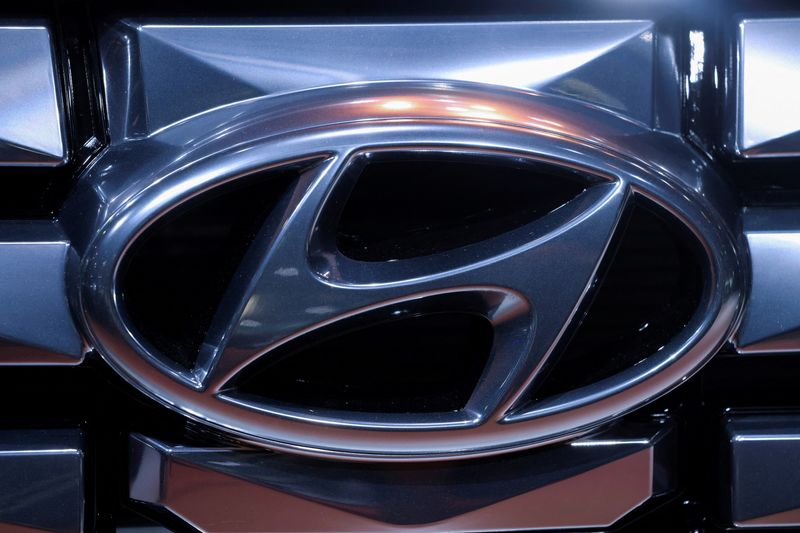Hyundai Motor’s South Korea union accepts 12% wage hike deal
2023.09.18 12:07

© Reuters. FILE PHOTO: The logo of Hyundai Motor Company is pictured at the New York International Auto Show, in Manhattan, New York City, U.S., April 13, 2022. REUTERS/Andrew Kelly/File Photo
By Heekyong Yang
SEOUL (Reuters) -Hyundai Motor Co and a union representing its South Korean workforce on Monday sealed a wage deal that will boost annual pay by about 12%, avoiding a strike and production losses at the company’s biggest manufacturing base.
The union, one of the biggest in South Korea with more than 44,000 members, said on Monday that a total of 58.8% of its voting members had approved the tentative agreement reached last week, while 41.1% rejected it.
Unionised workers voted last month for a possible strike over demands for higher wages, a performance bonus and an increase in the mandatory retirement age to 64 from 60.
The union demand to increase the retirement age – which would have allowed workers to stay in their jobs, reducing reliance on the pension system, for longer – was not accepted.
Workers at Hyundai Motor (OTC:), the No.3 global automaker by sales with its affiliate Kia Corp, last went on strike in 2018.
Unionised workers at Hyundai in South Korea held a four-hour strike for one day in July in support of a general strike, but it was not related to the union’s wage negotiations with the management.
The United Auto Workers (UAW) last week went on strike against all three Detroit automakers – General Motors Co (NYSE:), Ford Motor (NYSE:) Co and Stellantis (NYSE:) – at once for the first time.
Hyundai Motor Group, which houses Hyundai Motor, Kia, luxury brand Genesis, operates U.S. production sites in Alabama and Georgia. The auto group currently is building electric vehicle and battery plant in Georgia.
“The labour risks have been there all along, especially in the auto sector, but this UAW strike is unprecedented. If the UAW manages to win major pay raises, it could make workers at foreign automakers, like Hyundai Motor and Kia, that operate non-union plants in the United States, think about the UAW representation,” said Lee Jae-il, an analyst at Eugene Investment & Securities.








